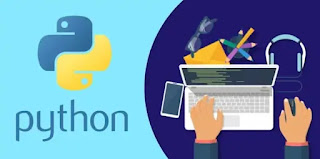
Why Python is used? Python is a versatile and widely used programming language known for its simplicity, readability, and flexibility. It finds applications across various domains due to its wide range of features and capabilities. Here are some of the reasons why Python is used: Ease of Learning and Readability Python's clean and readable syntax resembles natural language, making it easy for beginners to learn and understand. Its indentation-based structure enforces good coding practices and readability. General-Purpose Language Python is a general-purpose programming language, which means it can be used for a wide range of applications, from web development to data analysis, scientific computing, automation, and more. Diverse Libraries and Frameworks Python offers a vast ecosystem of libraries and frameworks that extend its functionality. Libraries like NumPy, pandas, and Matplotlib make data analysis and visualization efficient. Frameworks like Django and Flask simplify web d...